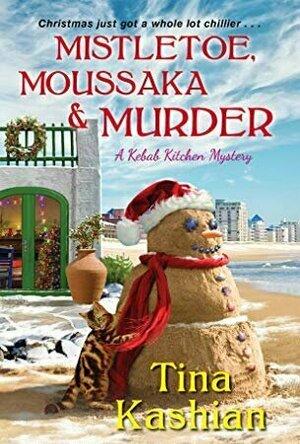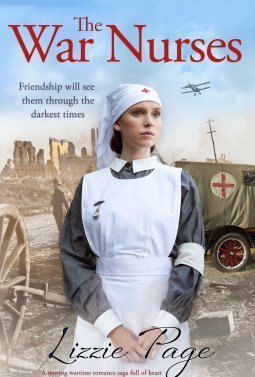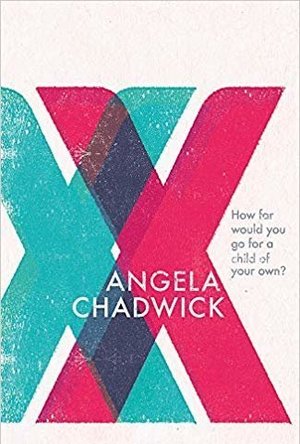Search
Search results
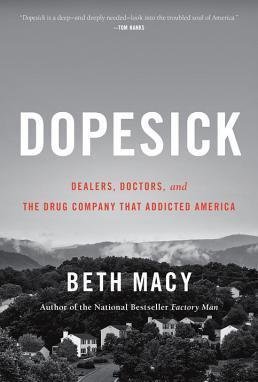
Dopesick : Dealers, Doctors, and the Drug Company that Addicted America
Book
In this masterful work, Beth Macy takes us into the epicenter of America’s twenty-plus year...
Mark @ Carstairs Considers (2476 KP) rated Mistletoe, Moussaka, and Murder in Books
Oct 21, 2021 (Updated Oct 21, 2021)
Polar Bear Plunge of Death
Every December, Ocean Crest, New Jersey, hosts a polar bear plunge as a fund raiser, and this year it is raising money for a much-needed renovation for the senior center. Most of the businesses in the town are participating, and Lucy Berberian is representing her family’s Kebab Kitchen restaurant. As expected, the water is chilly, but all that is soon forgotten when the dead body of one of the participants washes ashore. At first everyone assumes that the shock of the cold water killed Deacon Spooner, but the medical examiners determines that it was murder. Lucy had recently met Deacon, and he wasn’t a nice man. When the police look at Lucy’s friend as their prime suspect, she can’t help but nose around. She uncovers plenty of motives and opportunity, but who actually killed the man?
The book starts out strong, but it loses its way, with very little forward movement and a sub-plot taking over as we near the climax. Fortunately, we do get a logical and suspenseful ending. The sub-plot, about Lucy dragging her feet planning her wedding, would have made sense if it had been weeks between books instead of months. Still, it did allow us to see some growth in Lucy and in her relationships, which I appreciated. The book isn’t overwhelming with Christmas, but it is there, and I enjoyed that aspect as well. We get four recipes at the end of the book to enjoy later. While the book could have been stronger, as a fan of the series, I’m glad I read it.
The book starts out strong, but it loses its way, with very little forward movement and a sub-plot taking over as we near the climax. Fortunately, we do get a logical and suspenseful ending. The sub-plot, about Lucy dragging her feet planning her wedding, would have made sense if it had been weeks between books instead of months. Still, it did allow us to see some growth in Lucy and in her relationships, which I appreciated. The book isn’t overwhelming with Christmas, but it is there, and I enjoyed that aspect as well. We get four recipes at the end of the book to enjoy later. While the book could have been stronger, as a fan of the series, I’m glad I read it.
Heather Cranmer (2721 KP) created a post
Nov 14, 2022 (Updated Nov 14, 2022)
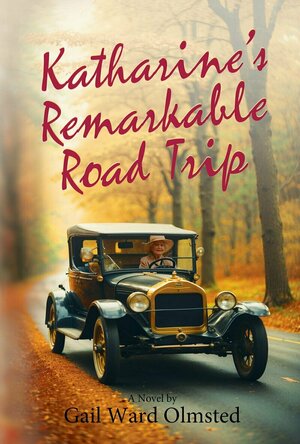
Katharine's Remarkable Road Trip
Book
In the fall of 1907, Katharine decides to drive from Newport, Rhode Island, to her home in Jackson,...
Historical Fiction Civil War Nurses Biographical Fiction Women In History

Master Zane's Boys (Club Sensation #1)
Book
Master, Daddy, protector. Zane will do anything for his boys… As the owner of Boston's Club...
Contemporary MMM Romance BDSM Daddy / little Age Gap
Hazel (1853 KP) rated Small Great Things in Books
May 24, 2017
Small is an Understatement
Jodi Picoult has been my favourite author since I first came across her novels in 2008. With twenty-three novels under her belt, she continues to delight readers with her page-turning stories. Most of Picoult’s books contain a moral issue, often, but not always, in the form of medical ethics, as well as a hefty court case. Although following along similar lines, Small Great Things is a radical, revolutionary book, which, with great courage, Picoult has written with the intent to expose the reader to truths that most of us, as a society, are intentionally oblivious to.
The gist of the storyline is that a baby dies whilst under the care of a nurse, prompting the grieving parents to take her to court with the accusation of murder. Although that sounds like an interesting story, it barely begins to describe what the book is about. The character on trial, Ruth, is an African American labour and delivery nurse – something that in this day and age need not by an issue. On the other hand, the parents of the baby are White Supremacists: seriously racist with the belief that white people are the master race. The father, Turk, refuses to let his wife and child be treated by Ruth, however circumstances result in her being the only nurse available to watch Davis, when, unfortunately, he so happens to go into cardiac arrest. Although the reader knows that Ruth is not at fault, Turk insists she murdered his child – but is he accusing her of medical negligence, or punishing her for being black?
Three characters, all with different views and experience when it comes to racism, alternately narrate Small Great Things. Ruth and Turk represent the extremes at either side of the scale. Ruth experiences first hand the negative impact of prejudice in the American system and society, not only through this court case, but in everyday life as well. She also reveals the difficulties growing up in a predominately white environment, never feeling like she fitted in with her peers. Alternatively, Turk spent his teenage years attending KKK rallies, participating in a white power movement, and beating up anyone who was different: black, foreign, gay, Jewish and so forth.
The third character represents the majority of white people living in America. Kennedy is a public defender and the lawyer assigned to Ruth’s case. Like most of the population, she believes that she is not racist, and persuades Ruth to leave the colour of her skin out of the argument. However, as she gets to know her client, she begins to realize that it is nigh on impossible to ignore racial prejudice.
Picoult shocks the reader on two accounts: one, the way that people of colour have been, and still are, treated; and two, the revelation that an invisible empire of White Supremacists are living amongst us. Yet there is a third way in which Picoult provokes outrage – she indirectly accuses the reader of being racist, too.
There is always something to learn in a Jodi Picoult novel, for instance medical terminology, or the way in which a court trial is conducted. Small Great Things provides a lot more eye opening information than any of her previous books, unveiling facts about such a controversial subject.
Through Kennedy, the reader’s eyes are opened to the racial discrimination that we all turn a blind eye to. Ignored are the difficulties African Americans suffer when going shopping, applying for jobs, attending school, walking down the street, sitting on a bus, and so forth. Picoult asks me as a reader to think about how my life has been affected by racial discrimination: being served politely in shops because I am white, not having my ethnicity questioned when applying for college etc. Living in Britain I have not experienced openly hateful comments or behaviours towards people with a different skin tone – I used to believe this was primarily an American problem. Yet, Small Great Things has really made me think about the hierarchy of power within society, particularly in regards to the ethnicity of those at the top, compared with those at the bottom.
Jodi Picoult sat on the idea of writing a book about racism for well over a decade, yet it is particularly apt that it is published now, with the current predicaments America is facing. Although we have come a long way in attempts to achieve equality for all – compare the trial in To Kill A Mockingbird to Picoult’s version – recent events have revealed that we are no where near.
Small Great Things will shock everyone who reads it regardless of their ethnicity and so forth. Many may find it uncomfortable to read, become upset or outraged, and even feel like they are being directly targeted. If this is the case, then good – it should do that. Everyone needs to read this book. On the one hand it is a brilliant, well told story with a beautiful, almost poetic narrative, and on the other, it causes us to face up to the issues we are forever making light of or overlooking entirely. We have grown up believing that racism is a form of hatred when, actually, it is about power. However Small Great Things makes you feel, it is definitely worth reading, especially for the satisfying ending – one that you do not see coming.
The gist of the storyline is that a baby dies whilst under the care of a nurse, prompting the grieving parents to take her to court with the accusation of murder. Although that sounds like an interesting story, it barely begins to describe what the book is about. The character on trial, Ruth, is an African American labour and delivery nurse – something that in this day and age need not by an issue. On the other hand, the parents of the baby are White Supremacists: seriously racist with the belief that white people are the master race. The father, Turk, refuses to let his wife and child be treated by Ruth, however circumstances result in her being the only nurse available to watch Davis, when, unfortunately, he so happens to go into cardiac arrest. Although the reader knows that Ruth is not at fault, Turk insists she murdered his child – but is he accusing her of medical negligence, or punishing her for being black?
Three characters, all with different views and experience when it comes to racism, alternately narrate Small Great Things. Ruth and Turk represent the extremes at either side of the scale. Ruth experiences first hand the negative impact of prejudice in the American system and society, not only through this court case, but in everyday life as well. She also reveals the difficulties growing up in a predominately white environment, never feeling like she fitted in with her peers. Alternatively, Turk spent his teenage years attending KKK rallies, participating in a white power movement, and beating up anyone who was different: black, foreign, gay, Jewish and so forth.
The third character represents the majority of white people living in America. Kennedy is a public defender and the lawyer assigned to Ruth’s case. Like most of the population, she believes that she is not racist, and persuades Ruth to leave the colour of her skin out of the argument. However, as she gets to know her client, she begins to realize that it is nigh on impossible to ignore racial prejudice.
Picoult shocks the reader on two accounts: one, the way that people of colour have been, and still are, treated; and two, the revelation that an invisible empire of White Supremacists are living amongst us. Yet there is a third way in which Picoult provokes outrage – she indirectly accuses the reader of being racist, too.
There is always something to learn in a Jodi Picoult novel, for instance medical terminology, or the way in which a court trial is conducted. Small Great Things provides a lot more eye opening information than any of her previous books, unveiling facts about such a controversial subject.
Through Kennedy, the reader’s eyes are opened to the racial discrimination that we all turn a blind eye to. Ignored are the difficulties African Americans suffer when going shopping, applying for jobs, attending school, walking down the street, sitting on a bus, and so forth. Picoult asks me as a reader to think about how my life has been affected by racial discrimination: being served politely in shops because I am white, not having my ethnicity questioned when applying for college etc. Living in Britain I have not experienced openly hateful comments or behaviours towards people with a different skin tone – I used to believe this was primarily an American problem. Yet, Small Great Things has really made me think about the hierarchy of power within society, particularly in regards to the ethnicity of those at the top, compared with those at the bottom.
Jodi Picoult sat on the idea of writing a book about racism for well over a decade, yet it is particularly apt that it is published now, with the current predicaments America is facing. Although we have come a long way in attempts to achieve equality for all – compare the trial in To Kill A Mockingbird to Picoult’s version – recent events have revealed that we are no where near.
Small Great Things will shock everyone who reads it regardless of their ethnicity and so forth. Many may find it uncomfortable to read, become upset or outraged, and even feel like they are being directly targeted. If this is the case, then good – it should do that. Everyone needs to read this book. On the one hand it is a brilliant, well told story with a beautiful, almost poetic narrative, and on the other, it causes us to face up to the issues we are forever making light of or overlooking entirely. We have grown up believing that racism is a form of hatred when, actually, it is about power. However Small Great Things makes you feel, it is definitely worth reading, especially for the satisfying ending – one that you do not see coming.
Hazel (1853 KP) rated Small Great Things in Books
Dec 7, 2018
Jodi Picoult has been my favourite author since I first came across her novels in 2008. With twenty-three novels under her belt, she continues to delight readers with her page-turning stories. Most of Picoult’s books contain a moral issue, often, but not always, in the form of medical ethics, as well as a hefty court case. Although following along similar lines, <i>Small Great Thing</i>s is a radical, revolutionary book, which, with great courage, Picoult has written with the intent to expose the reader to truths that most of us, as a society, are <s>intentionally</s> oblivious to.
The gist of the storyline is that a baby dies whilst under the care of a nurse, prompting the grieving parents to take her to court with the accusation of murder. Although that sounds like an interesting story, it barely begins to describe what the book is about. The character on trial, Ruth, is an African American labour and delivery nurse – something that in this day and age need not by an issue. On the other hand, the parents of the baby are White Supremacists: seriously racist with the belief that white people are the master race. The father, Turk, refuses to let his wife and child be treated by Ruth, however circumstances result in her being the only nurse available to watch Davis, when, unfortunately, he so happens to go into cardiac arrest. Although the reader knows that Ruth is not at fault, Turk insists she murdered his child – but is he accusing her of medical negligence, or punishing her for being black?
Three characters, all with different views and experience when it comes to racism, alternately narrate<i> Small Great Things</i>. Ruth and Turk represent the extremes at either side of the scale. Ruth experiences first hand the negative impact of prejudice in the American system and society, not only through this court case, but in everyday life as well. She also reveals the difficulties growing up in a predominately white environment, never feeling like she fitted in with her peers. Alternatively, Turk spent his teenage years attending KKK rallies, participating in a white power movement, and beating up anyone who was different: black, foreign, gay, Jewish and so forth.
The third character represents the majority of white people living in America. Kennedy is a public defender and the lawyer assigned to Ruth’s case. Like most of the population, she believes that she is not racist, and persuades Ruth to leave the colour of her skin out of the argument. However, as she gets to know her client, she begins to realize that it is nigh on impossible to ignore racial prejudice.
Picoult shocks the reader on two accounts: one, the way that people of colour have been, and still are, treated; and two, the revelation that an invisible empire of White Supremacists are living amongst us. Yet there is a third way in which Picoult provokes outrage – she indirectly accuses the reader of being racist, too.
There is always something to learn in a Jodi Picoult novel, for instance medical terminology, or the way in which a court trial is conducted. <i>Small Great Things</i> provides a lot more eye opening information than any of her previous books, unveiling facts about such a controversial subject.
Through Kennedy, the reader’s eyes are opened to the racial discrimination that we all turn a blind eye to. Ignored are the difficulties African Americans suffer when going shopping, applying for jobs, attending school, walking down the street, sitting on a bus, and so forth. Picoult asks me as a reader to think about how my life has been affected by racial discrimination: being served politely in shops because I am white, not having my ethnicity questioned when applying for college etc. Living in Britain I have not experienced openly hateful comments or behaviours towards people with a different skin tone – I used to believe this was primarily an American problem. Yet, <i>Small Great Things</i> has really made me think about the hierarchy of power within society, particularly in regards to the ethnicity of those at the top, compared with those at the bottom.
Jodi Picoult sat on the idea of writing a book about racism for well over a decade, yet it is particularly apt that it is published now, with the current predicaments America is facing. Although we have come a long way in attempts to achieve equality for all – compare the trial in <i>To Kill A Mockingbird</i> to Picoult’s version – recent events have revealed that we are no where near.
<i>Small Great Things</i> will shock everyone who reads it regardless of their ethnicity and so forth. Many may find it uncomfortable to read, become upset or outraged, and even feel like they are being directly targeted. If this is the case, then good – it should do that. Everyone needs to read this book. On the one hand it is a brilliant, well told story with a beautiful, almost poetic narrative, and on the other, it causes us to face up to the issues we are forever making light of or overlooking entirely. We have grown up believing that racism is a form of hatred when, actually, it is about power. However <i>Small Great Things </i>makes you feel, it is definitely worth reading, especially for the satisfying ending – one that you do not see coming.
The gist of the storyline is that a baby dies whilst under the care of a nurse, prompting the grieving parents to take her to court with the accusation of murder. Although that sounds like an interesting story, it barely begins to describe what the book is about. The character on trial, Ruth, is an African American labour and delivery nurse – something that in this day and age need not by an issue. On the other hand, the parents of the baby are White Supremacists: seriously racist with the belief that white people are the master race. The father, Turk, refuses to let his wife and child be treated by Ruth, however circumstances result in her being the only nurse available to watch Davis, when, unfortunately, he so happens to go into cardiac arrest. Although the reader knows that Ruth is not at fault, Turk insists she murdered his child – but is he accusing her of medical negligence, or punishing her for being black?
Three characters, all with different views and experience when it comes to racism, alternately narrate<i> Small Great Things</i>. Ruth and Turk represent the extremes at either side of the scale. Ruth experiences first hand the negative impact of prejudice in the American system and society, not only through this court case, but in everyday life as well. She also reveals the difficulties growing up in a predominately white environment, never feeling like she fitted in with her peers. Alternatively, Turk spent his teenage years attending KKK rallies, participating in a white power movement, and beating up anyone who was different: black, foreign, gay, Jewish and so forth.
The third character represents the majority of white people living in America. Kennedy is a public defender and the lawyer assigned to Ruth’s case. Like most of the population, she believes that she is not racist, and persuades Ruth to leave the colour of her skin out of the argument. However, as she gets to know her client, she begins to realize that it is nigh on impossible to ignore racial prejudice.
Picoult shocks the reader on two accounts: one, the way that people of colour have been, and still are, treated; and two, the revelation that an invisible empire of White Supremacists are living amongst us. Yet there is a third way in which Picoult provokes outrage – she indirectly accuses the reader of being racist, too.
There is always something to learn in a Jodi Picoult novel, for instance medical terminology, or the way in which a court trial is conducted. <i>Small Great Things</i> provides a lot more eye opening information than any of her previous books, unveiling facts about such a controversial subject.
Through Kennedy, the reader’s eyes are opened to the racial discrimination that we all turn a blind eye to. Ignored are the difficulties African Americans suffer when going shopping, applying for jobs, attending school, walking down the street, sitting on a bus, and so forth. Picoult asks me as a reader to think about how my life has been affected by racial discrimination: being served politely in shops because I am white, not having my ethnicity questioned when applying for college etc. Living in Britain I have not experienced openly hateful comments or behaviours towards people with a different skin tone – I used to believe this was primarily an American problem. Yet, <i>Small Great Things</i> has really made me think about the hierarchy of power within society, particularly in regards to the ethnicity of those at the top, compared with those at the bottom.
Jodi Picoult sat on the idea of writing a book about racism for well over a decade, yet it is particularly apt that it is published now, with the current predicaments America is facing. Although we have come a long way in attempts to achieve equality for all – compare the trial in <i>To Kill A Mockingbird</i> to Picoult’s version – recent events have revealed that we are no where near.
<i>Small Great Things</i> will shock everyone who reads it regardless of their ethnicity and so forth. Many may find it uncomfortable to read, become upset or outraged, and even feel like they are being directly targeted. If this is the case, then good – it should do that. Everyone needs to read this book. On the one hand it is a brilliant, well told story with a beautiful, almost poetic narrative, and on the other, it causes us to face up to the issues we are forever making light of or overlooking entirely. We have grown up believing that racism is a form of hatred when, actually, it is about power. However <i>Small Great Things </i>makes you feel, it is definitely worth reading, especially for the satisfying ending – one that you do not see coming.
BeRad89 (48 KP) rated The War Nurses in Books
Apr 5, 2018
“... a flying ambulance corps made up of a naturist, a pianist, a journalist, a lady and a widowed mother...and a non smoking schoolgirl.” This is the description of the ambulance corp of Elsie Knockers and Mairi Chisholm during World War I. Will these brave ladies' friendship and sisterhood survive the war as they live in close quarters and dodge bullets as front line nurses in a cellar?
I started this book without much hope. To me, the cover is cheap-looking, and I admit this colored my judgement. How wrong I was!!! The War Nurses ended up being a very good read. Mairi is shown in such a real light. I was amazed at what both women did during the war. To see the human side of such a brave woman was interesting. I didn't personally like Elsie, but her character was amusing and kept surprising me.
While it didn't particularly bother me, some people will not like the amount of gore and yucky stuff in this book. While I know you can't judge a book by its cover, the cover to this book is very cheap looking.
The War Nurses by Lizzie Page is a work of historical fiction. It will be published April 17, 2018 by Bookouture.
I give this book 4 out of 5 stars. It ending up being a very pleasant surprise, as I judged this book by the cover and wasn't expecting much from it. It is an inspiring and eye-opening book. I recommend to anyone who loves powerful women, coming of age stories, WWI, medical stories, and/or historical fiction.
I was given a free copy from Net Galley and Bookouture in exchange for my honest review.
I started this book without much hope. To me, the cover is cheap-looking, and I admit this colored my judgement. How wrong I was!!! The War Nurses ended up being a very good read. Mairi is shown in such a real light. I was amazed at what both women did during the war. To see the human side of such a brave woman was interesting. I didn't personally like Elsie, but her character was amusing and kept surprising me.
While it didn't particularly bother me, some people will not like the amount of gore and yucky stuff in this book. While I know you can't judge a book by its cover, the cover to this book is very cheap looking.
The War Nurses by Lizzie Page is a work of historical fiction. It will be published April 17, 2018 by Bookouture.
I give this book 4 out of 5 stars. It ending up being a very pleasant surprise, as I judged this book by the cover and wasn't expecting much from it. It is an inspiring and eye-opening book. I recommend to anyone who loves powerful women, coming of age stories, WWI, medical stories, and/or historical fiction.
I was given a free copy from Net Galley and Bookouture in exchange for my honest review.
Cynthia Armistead (17 KP) rated A Free Man of Color (Benjamin January, #1) in Books
Mar 1, 2018
Historical fiction isn't my favorite genre, but I'm much more willing to read it when it's mixed with mystery. I've read some of Hambly's work before and know her to be a fine writer, and I'd read good reviews of this series by people I respect, so I decided to give it a whirl.
I suppose all the descriptions of people's clothing would have mattered much more to someone who cared about such things, but I do realize that they were important in the context of the story. Personally, I was relieved when the main character went on a journey! I would have been happier had his medical skills been utilized more frequently than they were, but I suppose his experiences were fairly true to life for a "colored" man of his time.
I did learn quite a lot—things that I intend to verify in non-fiction sources shortly. The information about the black code, for instance, and the explanation of the distinction between "black" and "colored" people seemed too precise to be fabricated.
I knew, too, that Louisiana is the only U.S. state whose laws are based on French rather than English common law, which seemed silly to me. Why wouldn't they go with the standard everyone else used? After reading this novel, I'm starting to realize that there may have been rights given to citizens under French law that were lost under English law.
I'm not sure as to whether or not I'll go forward in the series, as I'm not sure that I can handle the unhappiness I can see foreshadowed even in some of the titles. However, I will say that this volume is well-written and well-plotted. I certainly didn't guess who the killer was or why the murder was committed before the big reveal, and that was a pleasant change!
I suppose all the descriptions of people's clothing would have mattered much more to someone who cared about such things, but I do realize that they were important in the context of the story. Personally, I was relieved when the main character went on a journey! I would have been happier had his medical skills been utilized more frequently than they were, but I suppose his experiences were fairly true to life for a "colored" man of his time.
I did learn quite a lot—things that I intend to verify in non-fiction sources shortly. The information about the black code, for instance, and the explanation of the distinction between "black" and "colored" people seemed too precise to be fabricated.
I knew, too, that Louisiana is the only U.S. state whose laws are based on French rather than English common law, which seemed silly to me. Why wouldn't they go with the standard everyone else used? After reading this novel, I'm starting to realize that there may have been rights given to citizens under French law that were lost under English law.
I'm not sure as to whether or not I'll go forward in the series, as I'm not sure that I can handle the unhappiness I can see foreshadowed even in some of the titles. However, I will say that this volume is well-written and well-plotted. I certainly didn't guess who the killer was or why the murder was committed before the big reveal, and that was a pleasant change!
A provocative, timely, stonking good read!
Such a thought provoking, insightful book! This novel looks at the possibility of two women having a baby using a groundbreaking medical discovery - two ovums, no sperm. Of course there's an outcry. Religious-types, mens rights activists and bigots in general make their opinions publicly known. Jules and Rosie, the two main characters, try to stay out of the limelight. Jules is a reporter at a local Portsmouth newspaper, so knows how the system works, but when the story is leaked to the newspapers, along with their identities, she is sure that her policy of 'no comment' will work. The media doesn't get bored though, and her workplace aren't in any way supportive. They want the story as much as anyone else.
This could have been a terrible book, but it really wasn't. The subject matter was sensitively dealt with, the relationship between Jules and Rosie wasn't sensationalised, reactions, both good and bad, were realistic. This book is coming out during interesting times globally, where women are calling out bad male behaviour. I can see this being a route that a lot of women would take given the opportunity, whether they were gay or straight - and male fertility is taking a nose dive at the moment, too! So perhaps this would be a real solution (if some clever scientist could get it to work!).
By the way, I lived and taught in a high school in Petersfield on the edge of Leigh Park in the mid to late 1990's, and I think she has the essence of the place just right. It's not an easy place to live and grow up in.
Many thanks to NetGalley and Dialogue Books for my copy of this book
This could have been a terrible book, but it really wasn't. The subject matter was sensitively dealt with, the relationship between Jules and Rosie wasn't sensationalised, reactions, both good and bad, were realistic. This book is coming out during interesting times globally, where women are calling out bad male behaviour. I can see this being a route that a lot of women would take given the opportunity, whether they were gay or straight - and male fertility is taking a nose dive at the moment, too! So perhaps this would be a real solution (if some clever scientist could get it to work!).
By the way, I lived and taught in a high school in Petersfield on the edge of Leigh Park in the mid to late 1990's, and I think she has the essence of the place just right. It's not an easy place to live and grow up in.
Many thanks to NetGalley and Dialogue Books for my copy of this book
